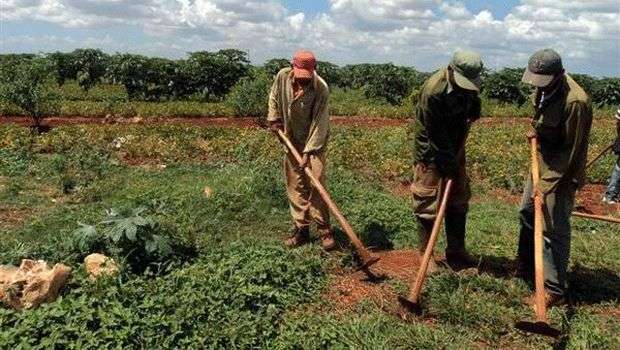From December 1st this year, Cuban small farmers “land and beneficial owners” will be allowed to sell a wide range of products directly to the tourism sector of the country, without the mediation of a state enterprise.
According to Granma newspaper on October 21 the Ministries of Agriculture, Tourism, and Finance and Prices will enforce resolutions which will expand the possibilities of direct marketing between the two sectors, a fact that could previously only be done through the Credit and Service Cooperatives (CCS by its Spanish acronym).
Since December 2011, it had been authorized the direct marketing of agricultural products between the forms of production and tourism entities in the country. After a long wait, to the list of approved products two years ago -some sources consulted said-are now added fresh flowers, ornamental plants, spices and dried seasonings, chicken and quail eggs, flower arranging and gardening. According to Juventud Rebelde newspaper Cuban farmers, previously, could only market non-industrialized agricultural products, rice and charcoal.
The new options, published on Monday in the Special Official Gazette no. 24, contribute to the transformation of the system of collection and marketing of agricultural production through management mechanisms increasingly agile that simplify the links between primary production and the final consumer.
To ensure direct links between tourism entities and small farmers, in accordance to what is legislated by the Central Bank of Cuba, they can open checking accounts in Cuban pesos (CUP) in commercial banks.
In its resolution, the Ministry of Finance and Prices establishes that the Financial House of the Ministry Tourism or the banking institutions, as appropriate, in these cases will retain 5 percent of the value of sales in CUP, an operation that is currently performed by collection entities. Granma explains that this is the minimum amount of tax on personal income that producers are obliged to pay according to the Cuban Tax System.
This is another step in the economic reforms of Raul Castro, after the approval of buying and selling houses and cars, and the expansion of private work.










